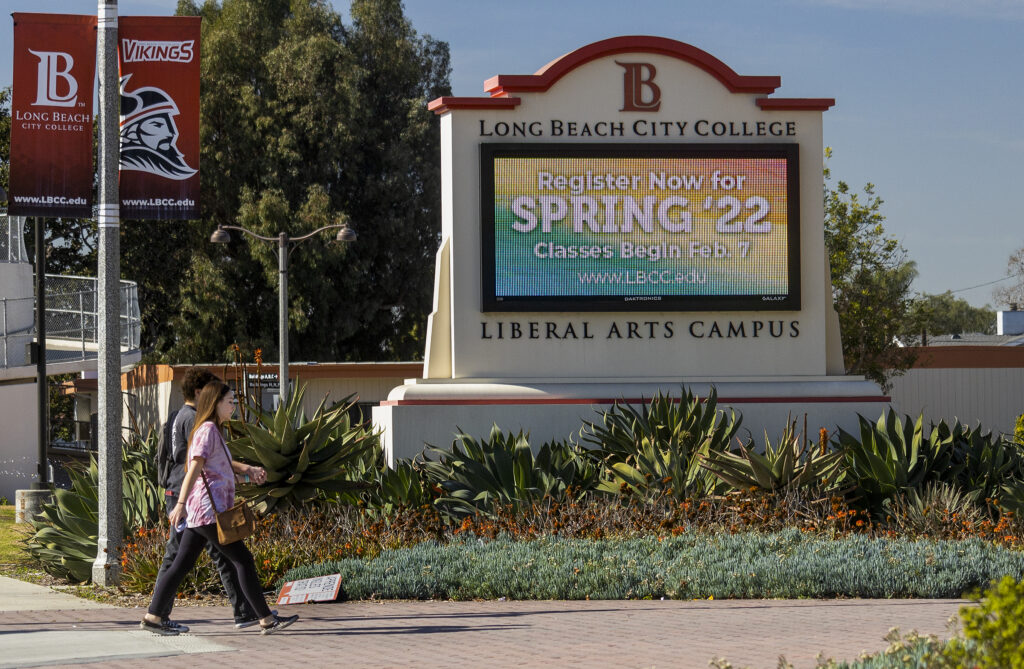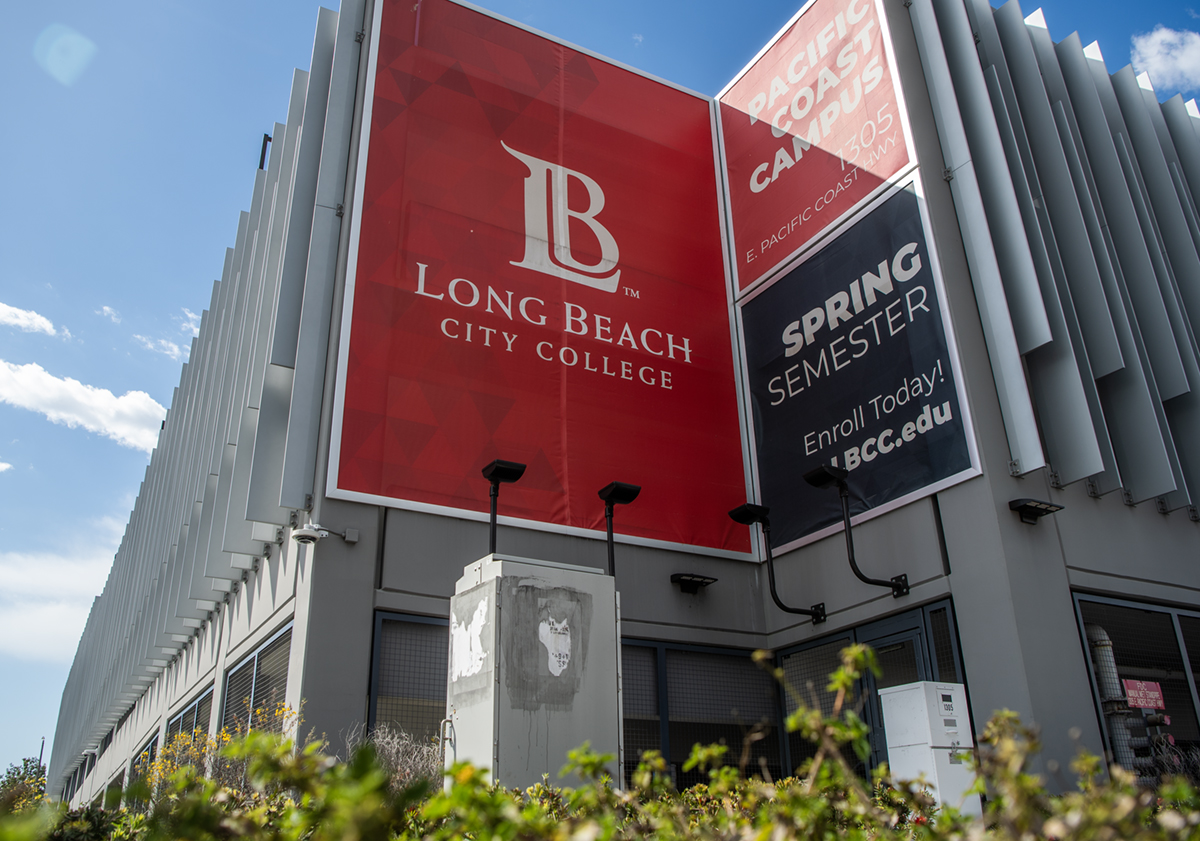When La’Toya Cooper applied to Long Beach City College to pursue psychology, she didn’t know how she would balance her education with parenting two young children and working full-time.
But LBCC identified her as a good fit for the shorter-format courses the college was offering, geared toward students like Cooper who are navigating busy adult lives amid their studies.
“I went to the orientation, and when I heard everything, I was super super interested,” she said, deciding she could handle the coursework on top of her day job at an organization addressing youth homelessness.
In August 2024, she enrolled in LBCC’s accelerated 8-week courses, which cover the curriculum of typical 16-week courses in half the time.
In recent years, LBCC has significantly expanded this compressed format and seen tremendous success, particularly among Black students and adult learners returning to school, according to O. Lee Douglas, vice president of academic affairs. “This is one of our biggest equity initiatives for the campus,” he said.
Douglas said LBCC began shifting toward 8-week courses when “student success rates were not where we wanted them to be.” According to data from LBCC’s office of institutional effectiveness, about two-thirds of students were passing their courses with a C or better, well below the state average.
In fall 2024, the college doubled its offering of shorter format courses, which now make up a third of the LBCC classes – and student success rose dramatically, Douglas said.
Furthermore, Black and African American students and adult learners were self-selecting the 8-week courses, Douglas said, and performing better than students in traditional 16-week courses. The college took note. By fall 2026, LBCC plans to offer at least half of its courses in the compressed format.
LBCC has been a pioneer of shorter-format courses in California, Douglas said, and more colleges across the state are catching on. A group of California researchers analyzed statewide administrative data and found that in 2021, almost a quarter of community college enrollments were in compressed class formats.
Douglas said that LBCC is now working with other schools, including El Camino College and Mt. San Antonio College, as they expand shorter course formats.
LBCC is implementing the compressed format thoughtfully. Course requirements remain the same, regardless of length, but “we didn’t want what was typically taught in a 16-week class just to be crammed into eight weeks,” Douglas said. He added that professors are taking different pedagogical approaches for shorter courses: more in-class assignments, peer collaboration, and instructor and student feedback.
Kirsten Moreno has been teaching at LBCC for 24 years and taught Cooper’s first LBCC class: English. Cooper said Moreno got students’ “boots on the ground running,” holding them to high standards while also offering flexibility for the demands and challenges of their lives. “I felt very included and very seen,” Cooper said.

“The students who come in, students like La’Toya, they are very driven to succeed, and they are managing a lot,” Moreno said. She checks in with them often and honors their lives outside the classroom.
Almost two-thirds of LBCC students are indirect matriculants, meaning they are not entering directly from high school. Recognizing that these students have different needs, LBCC is “actively seeking ways to remove barriers,” Moreno said, “so that they have access to quality education and that they are supported all the way through the transfer process.”
Cooper will graduate with her transfer degree in June, and she hopes to enroll at Cal State Long Beach next fall to finish her psychology degree and eventually become a therapist.
“I have lived experience of the foster care system, the juvenile system and the homeless system,” she said. Therapy has helped her heal from some of these experiences, she said, but she added, “I never had a therapist who I can identify with, and that was troubling for me.”
Now, she plans to offer the support to children and families she didn’t have growing up. Already, she said her studies in psychology have given her more insight into her own children. “It’s a beautiful experience so far,” she said.

